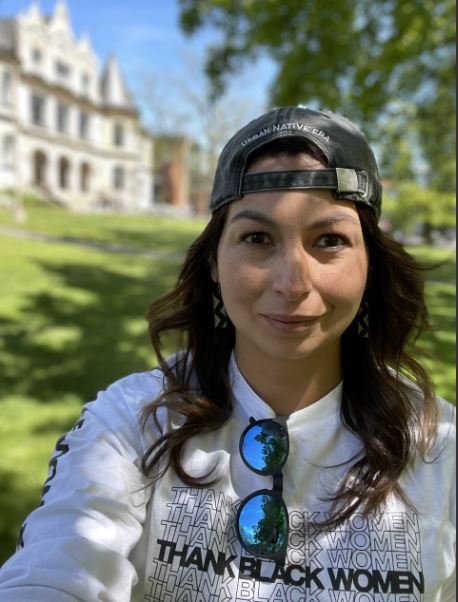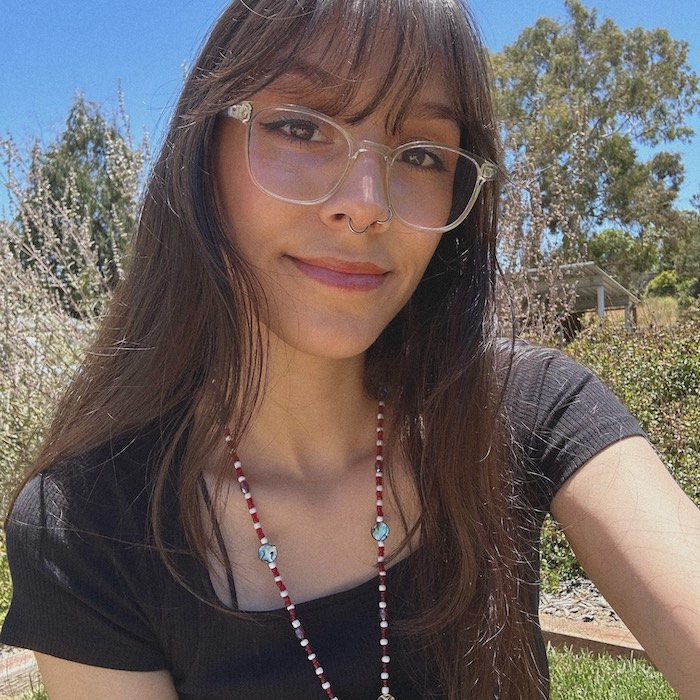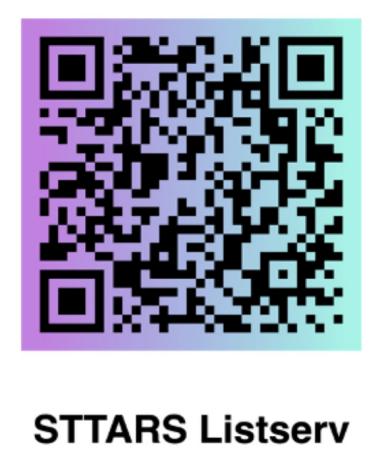STTARS Indigenous Safe Housing Center Launches Third Year With Three New Colleagues
Greeting 2024 and Celebrating the Movement With Renewed Energy
The STTARS Indigenous Safe Housing Center (STTARS) joins The National Indigenous Women’s Resource Center (NIWRC) in celebrating over 20 years of strong advocacy through Restoration to increase safety for Native women and children and through the strengthening of Tribal sovereignty through the Violence Against Women Task Force at the National Congress of American Indians.
STTARS is proud to enter its third year of funding in partnership with the Office of Family Violence Prevention and Services to further its important vision of “Safe housing for all our relatives.” The
intersection of gender-based violence and housing insecurity/homelessness is detrimental to the health of Tribal Nations, and we are honored to address this critical issue in our shared work with
many survivors, advocates, Tribal Nations, Native organizations, and allies. In furtherance of our vital mission and vision, we are overjoyed to announce three new staff members who are already bolstering our internal capacity to provide culturally grounded national training and technical assistance for Tribes,Tribal organizations, Native not-for-profits, Alaska Native Villages, Native Hawaiian communities, and off-reservation Tribal communities.
Clarice Hubbard, STTARS Safe Housing and Shelter Specialist

Clarice Charlie-Hubbard (she/her) is the dedicated STTARS Safe Housing and Shelter Specialist. Clarice is a proud member of the Te-moak Tribe and belongs to the Western Shoshone community. Originally from Bishop, CA, she now calls Sparks, NV, her home. Clarice’s remarkable journey in advocating for survivors of domestic violence began with her volunteer work in her local community. Eventually, she relocated to Reno, Nevada, where she joined the Domestic Violence Resource Center (formerly known as the Committee to Aid Abused Women) before discovering her true calling in supporting Native communities. Clarice’s unwavering commitment to her Native people led her to the Inter-Tribal Council of Nevada’s Family Violence Prevention Program (ITCN-FVPP). Over an impressive 17-year tenure as Program Director, she took the lead in various crucial initiatives, including providing essential emergency services, securing vital federal funding, fostering collaborative partnerships, and expanding the program’s statewide reach. Her tireless efforts resulted in significant improvements to safety resources for Native survivors of domestic violence, sexual assault, child abuse, elder abuse, and other forms of violence. Clarice’s leadership extends beyond her role; she also served as a board member for the Nevada Coalition to End Domestic and Sexual Violence (NCEDSV).
In recognition of her outstanding contributions, she received the prestigious National Visionary Voice award from the National Sexual Violence Resource Center in 2019. Clarice holds a Bachelor of Science in Social Work from the University of Nevada, Reno. In addition to Clarice’s work at the Center, she is also a training and technical assistance provider with Gwendolyn Packard on the Capacity Building Consortium with the National Network to End Domestic Violence, and we could not be more excited that she decided to join our team, especially considering her extensive experience and expertise.
Paloma Sanchez, STTARS ARP Coordinator and Specialist

Paloma Hąąpnąąžįwiiga Sánchez (they/them) is the ARP Coordinator and Specialist for STTARS, bringing a wealth of expertise and commitment to their role. They are a proud member of the Winnebago Tribe of Nebraska and also identify as Latinx and Two-Spirit. Paloma’s academic journey includes obtaining a Master’s in Anthropology from the University of California, Berkeley, focusing on Indigenous archaeology and community-based participatory research. Paloma is furthering their education at the University of Denver, pursuing a Master of Social Work to expand their impact on Indigenous communities.
In their prior roles, Paloma demonstrated an unwavering passion for providing culturally tailored support to unhoused and housed relatives in the Denver metro area. Their commitment extends beyond direct support, as Paloma has played a crucial role in developing and facilitating Indigenous Cultural Humility trainings. These trainings were designed for direct service providers engaging with unhoused Indigenous populations and behavioral health staff, emphasizing a respectful and culturally responsive approach.
As a survivor with significant lived experience, Paloma draws on their personal and professional insights to advocate for and support their Indigenous relatives. Their mission is to provide assistance and drive meaningful change that is inclusive, respectful, and driven by the needs and aspirations of Indigenous communities.
Paloma has been a member of our National Workgroup on Safe Housing for American Indian and Alaska Native Survivors of Gender-Based Violence, where they have been instrumental in representing numerous intersections of the work and have assisted the workgroup in developing responsive policy recommendations to the needs of our unhoused relatives. They have also participated in presentations and trainings that STTARS has provided as a national training and technical assistance provider.
As a part of STTARS, Paloma will coordinate our American Rescue Plan Dollars, particularly the funding we are sub-awarding to organizations and Tribes looking to address COVID-19 mitigation/public health, housing insecurity/homelessness, and gender-based violence.
Please reach out to housing@niwrc.org or request technical assistance here: www.niwrc.org/housing/contact.
Please see bit.ly/3Om5sfK for more information about applying for our ARP Funding.
Brianna Cervantes, STTARS Program Assistant

Brianna Cervantes, (she/they) Chumash, is excited to be a part of STTARS as our esteemed Program Assistant. She holds a Bachelor of Science in Forensic Behavioral Science with a minor in American Indian Studies from California State University, Fresno. Her goal is to use her education to support Indigenous survivors, whether through survivor advocacy or mental health services. After graduation, Brianna worked for a non-profit organization offering programs and services to incarcerated individuals, emphasizing restorative practices. This experience deepened her understanding of trauma’s impact on people’s life journeys and highlighted the importance of community and survivor-centered approaches. Brianna also expresses gratitude to her family and communities, particularly those in her homelands and Fresno (Yokut and Mono homelands), for their constant love and support. Since Brianna has been with STTARS, they have consistently shown that they are aligned with our mission and vision and bring an infusion of commitment and enthusiasm to the work.
Our Third Year Ahead
Our STTARS Staff has a strong reputation for consistent advocacy and dedication to our shared movement work in centering the voices of survivors. As a newer resource center, STTARS is intentional about developing our capacity. With the addition of these three individuals, we continue to build upon the integrity and strength of our work.
We look forward to this third year of funding and acknowledge and appreciate the support and partnership of survivors, our sister organizations, our MOU partners, the Domestic Violence Resource Network, the Domestic Violence and Housing Technical Assistance Consortium, and the Office of Family Violence and Prevention Services.
Get In Touch
To request training and technical assistance, please visit the Housing Center's page or contact us.
Please sign up for our newsletter, Lodestar, to keep up to date on upcoming events, important announcements, and to receive resources created or shared by the Center. Scan the QR code below!






